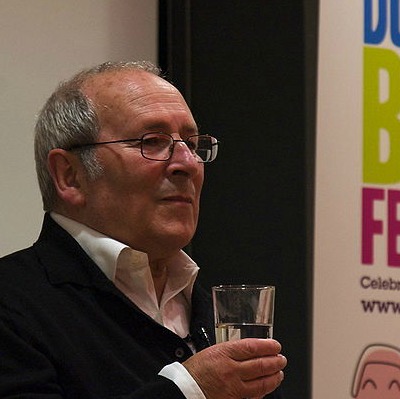First things first: Arnold Wesker’s great early plays were really great. In his groundbreaking Look Back in Anger (60 years old next month) John Osborne gave voice to the frustrated and furious young of the post-war period, but Wesker’s plays put that anger (which he also felt and articulated) into the context of 20 years of history. If you want to understand what happened to British society between the 1930s and the 1960s – which means understanding much of what British society is like now – you go to The Kitchen (about work), Chips with Everything (about National Service) and his trilogy of plays about the communist legacy, class and disillusionment: Chicken Soup with Barley, Roots and I’m Talking about Jerusalem.
The trilogy’s central character – clearly based on its author – represents the upwardly-mobile new intelligentsia which emerged (in particular) from left-wing families in the East End of the 1930s. But Roots – in which Arnold/Ronnie is an offstage character – is set in rural Norfolk, and is about a family which is socially and culturally stuck, and will remain so. The famous climax of the play – a speech in which a young working-class woman breaks free both from her family and from Ronnie – is an impassioned rejection of the “whole stinkin’ commercial world” in favour of bringing a higher culture to the masses. But the last stage direction reads: “The murmur of the family sitting down to eat grows as Beatie’s last cry is heard. Whatever they will do they will continue to live as before”. Arnold Wesker’s great theme was the inflexibilities of class, and the action of his plays the urge to break free.
In fact, Beatie’s original Dusty Bicker did stick with Arnold Wesker, and he with her: they got married on an Arts Council bursary. I got to know them in the late 1970s and 1980s, when Arnold’s reworking of The Merchant of Venice (The Merchant, later retitled Shylock) and his own production of the one-woman trilogy Annie Wobbler (written for Nichola McAuliffe) were being presented at the Birmingham Repertory Theatre. Three of his first five plays refer to food in their titles; both Dusty and Arnold were great cooks; it was no surprise that many of my happiest memories of him and them were over meals, in Birmingham restaurants, in their London home, and on British Council trips abroad (one, particularly memorably, in the New York Restaurant in Budapest, site of key events in the 1956 Hungarian Uprising). I was from the succeeding generation of British radical playwrights, but was always struck by Arnold’s generosity of spirit (and helpful advice) to those who followed him.
Shylock and Annie Wobbler were among the many plays which Arnold wrote following his period of greatest success in the late 1950s and early 1960s in London (though, in fact, all three of the trilogy plays were premiered at the Belgrade, Coventry). Others included Caritas at the National Theatre (with a wonderful performance by Patti Love as a mediaeval anchoress), a community play for Basildon and an evocative adaptation of Dava Sobel’s Longitude at Greenwich.
Arnold acknowledged the resonance of Longitude – the story of a working-class innovator denied due recognition (and remuneration) for his work. He blamed his legal battle with the RSC (who withdrew his play The Journalists from production in 1971) for the lack of major London productions of his later plays. The fact that he was not above mentioning this contributed to his unjustified reputation as a curmudgeon; but it is certainly true that British theatre could have made more use of Arnold Wesker in his later years.
Nonetheless, and in addition to his plays, Arnold wrote fiction, many essays and two impressive memoirs, the second about how The Merchant/Shylock closed early on Broadway, following the death of its star, Zero Mostel. In fact, the book is an excoriatingly painful and honest description of his relationship with The Merchant’s director John Dexter (who brought the early plays to the stage).
Honesty was, for Arnold, the great playwriterly virtue. The last thing he wrote to me was a (solicited) critique of the move in the theatre away from the individually-written text towards work devised by actors, which he described as “plays concocted by committee”. For him, art remains “the one human activity that demands brave honesty”. He didn’t say – but I think meant – that such honesty can only come from an individual’s direct experience. His familial and political experience of the key events of the middle of the 20th century made him uniquely fitted to apply his life to his times.
Unsurprisingly, Arnold was a lifelong Guild member. He lives on through his work (the last five years have seen notable revivals of The Kitchen, Chicken Soup with Barley and Roots at the National, the Royal Court and the Donmar), but also through those lucky enough to have been his friends, and of course his family. He leaves Dusty and three living children (tragically, their daughter Tanya died during his 80th birthday year).
The only line which appears in all three of the trilogy plays is: “You can’t change people, you can only give them some love and hope they’ll take it”. That isn’t the whole of Arnold Wesker, but it’s where he began.
Above photo of Sir Arnold Wesker at the Durham Book Festival 24 October 2008, by Simon James.

